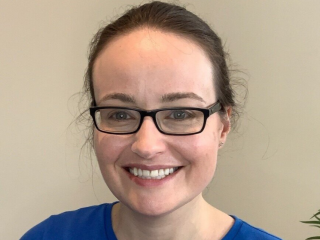Most people will have heard of epilepsy, but may not fully understand the condition. What’s something you wish more people understood about epilepsy?
When people think of epilepsy, they often immediately think of seizures. However, having seizures is often only one part of epilepsy – there are other morbidities (diseases or conditions that are part of epilepsy) that need to be considered; such as mental health conditions and movement disorders.
Many people with an epilepsy also experience sleep disorders such as insomnia and nightmares, which can make falling or staying asleep difficult. This can in turn have a negative impact on energy levels, mood, mental health and cognitive function, and can even lead to more seizures.
I experience psychiatric morbidities and at present, these have a greater impact on my quality of life than do seizures. The degree to which conditions/diseases impact a person’s life can vary throughout it as things change – internally and externally – and it’s crucial for HCPs to keep track of that and modify care accordingly.
Given that epilepsy impacts many areas of life, what can healthcare professionals (HCPs) be doing to ensure they are supporting someone in a holistic way?
Holistic healthcare considers a patients’ physical, mental, and emotional well-being alongside their epilepsy. I really appreciate it when a HCP asks how I am as a whole and doesn’t solely consider the occurrence of seizures. It encourages me to tell them about any other symptoms and aspects of my life that are part of the wider picture, which then enables the HCP to provide me with the best care.
Things like religious or cultural differences, a person’s relationship status, whether they’d like to have children in the future, what their career and/or care plans are, etc, are crucial to share with HCPs as they affect a person’s experience with their epilepsy as well as their overall quality of life. A person needs to be able to share with a HCP their mental health, including things like depression, anxiety, suicidal ideation (affecting approximately 40% of People with Epilepsy (PWE) at any one time), mood disorders, and feelings of isolation and hopelessness.
Not being able to communicate openly has a negative impact on mental health, so it is crucial that both PWE and their carers can talk openly at appointments. HCPs need to build a strong relationship with and get to know and understand their patient, and any caregiver that they might have, in order to effectively help treat and care for them.
How can caregivers best support people living with epilepsy?
Caregivers need to understand the specific needs of the person they are caring for as much as possible. It can be especially challenging if the person is non-verbal, has behavioural issues, if there isn’t a good relationship between parties, or if the caregiver has their own health issues or unmet needs. All of these need to be addressed.
For example, for some people this might be helping to manage seizure frequency and risk whilst helping them with their depression, anxiety, and behavioural issues. A person’s needs should be reassessed frequently as they can be forever changing.
I think it’s also worth mentioning here the importance of recognising the difficulties often faced by caregivers. Those caring for someone with epilepsy can experience feelings of shame or guilt, worry and anxiety about their loved-one’s health, problems sleeping, and more, which can negatively impact mental health. They too often don’t, but caregivers should be encouraged to have conversations and ask for support when they need it. After all, we sense the health and mood of those around us and if that of a caregiver improves it’s likely to have a positive impact on the person with an epilepsy too.
What advice would you give to somebody who has recently received a diagnosis of epilepsy, or for HCPs who are diagnosing people?
It can be both upsetting and frightening to receive an epilepsy diagnosis. My key piece of advice would be to seek out reliable sources of information and become clued up on your diagnosis. Learning about the epilepsies and all they can entail can be empowering and the more you learn, the more confident about it you will feel.
Building up and having a strong support network is also essential. When you tell your support network, friends or family that you have an epilepsy, do so as you would if you’d been newly diagnosed with asthma or diabetes. Explain to them (if they don’t know already) what the epilepsies are, what they can involve, how it affects you, and how they can support you, even if that means just being
a good friend to chat to. Remember that what you are going through can be (unfortunately, for all) rather similar to that of those with diagnoses other than an epilepsy! You aren’t alone and there are great people out there who can support you.
For HCPs who are diagnosing people with an epilepsy, understand that care should be personalised for each and every individual and explain that they do have a say in their treatment. Encourage them to share their relevant opinions and thoughts – although I know this can take time, patience, and perseverance. Having 2-way conversations with PWE and their caregivers, if appropriate, ultimately benefits both parties and can lead to both far improved patient relationships and more effective care.
You can show your support this Epilepsy Awareness Month by helping to spread awareness throughout November and beyond – find out more at National Epilepsy Awareness Month | Epilepsy Foundation.
Torie interviews global-lead clinicians, scientists and geneticists about their work and research into epilepsies on her Epilepsy Sparks Insights podcast series. She also shares information about epilepsy for those living with the condition and others who are interested in learning more. To learn more about epilepsy and hear more from Torie, visit her website at torierobinson.com and the organisational one epilepsysparks.com.











